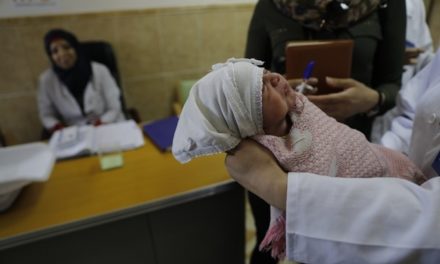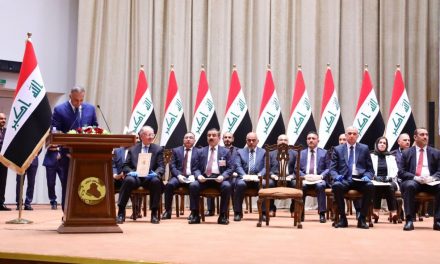(Photo: The Station)
Youth make up 62.8% of Iraq’s population, and today the Iraqi youth face a serious challenge: unemployment. Youth unemployment rate hovers at around 18%, and surprisingly, the number is higher among university graduates. How does Iraq accommodate changes and foster economic participation among a generation that’s eager to work? A growing ecosystem of entrepreneurship might have the answer. A handful of incubators have emerged across Iraq, offering business training and space to community members.
In Baghdad, Mujahed Waisi and Muhammad Munjed co-founded The Station, the first co-working space in Iraq. The founders, both experienced entrepreneurs, realized a co-working space could alleviate some of the pressing obstacles faced by innovators in Iraq. The Station forms an inclusive community that thrives on business creativity and collaboration, and the demand for this environment continues to grow. By June 2018, The Station was already home to 15 startups. According to Rasha Albani, The Station’s Administrative Officer, Iraq’s government has stopped employing graduates within the public sector. “This means that young people who graduate, and we have about 200,000 per year, can’t look to the government for a job. So the only way to make a living is to be employed within the private sector, like technical companies for example, or to start your own business. This is where entrepreneurship becomes a popular decision.”
The demand for entrepreneurship is also growing in other parts of Iraq. Five One Labs, a startup incubator in Iraqi Kurdistan, provides assistance and training to early-stage businesses. In their last 3-month incubator program, over 150 early-stage startups applied. According to Patricia Letayf, one of the co-founders at Five One Labs, the organization provides market-relevant training for Iraqis who come into the program with business ideas. “The trainings we offer are for designed thinking. Lean startup methodology, hard business skills, and leadership skills. It’s important to build soft skills.” Five One Labs also runs shorter Startup Bootcamp weekends. Between 30-40 people usually attend these weekend boot camps, however sometimes over 100 people apply.
The founder of Mosul Space, Salih Al-Naser, was inspired to launch Mosul’s first incubator when he realized that Iraq’s current education system does not teach the relevant skills needed for the private sector. “I noticed my university studies did not match my interest and they were in the old style. They didn’t match market needs so most students looked for government jobs after graduation.” At the Station in Baghdad, Rasha also emphasized the skills gap in higher education. “Most graduates don’t graduate with the right skills. There is a gap when it comes to the basics, such as soft skills. Large corporations tend to look with people with a specific skill or specific expertise with at least the basics on their CV, which is something they don’t tend to find.”
As the demand for entrepreneurship grows across all provinces in Iraq, the entrepreneurship ecosystem is coming together, and universities are beginning to participate. Five One Labs has already run training programs with the American University of Iraq Sulaymaniyah and the University of Raparin in Ranya. According to Patricia Letayf, Five One Labs reaches out to universities prior to each incubator and two-day bootcamp. Five One Labs is currently working with the University of Sulaymaniyah to run information sessions. In Nineveh Province, Salih Al-Naser is collaborating with the University of Mosul to bring entrepreneurial skills to its Career and Development Center.
Iraq’s entrepreneurship ecosystem is not just cultivating startup culture across the country; it is also training Iraqis in skills that are needed across the private sector. In a 2017 poll conducted by IREX, Iraqi employers voiced concern over the lack of competency in the most vital skills needed for private sector growth. According to the 400 employers involved in the poll, Iraqi university graduates need to acquire better language skills, computer skills, critical thinking, and problem-solving skills.
In order to foster ongoing economic development, Iraq’s public higher education sector should continue to work with the incubators and entrepreneurship leaders. While Five One Labs and Mosul Space have made headway with partnerships and training programs, other startup organizations have found it more difficult to penetrate the stiff higher education sector. The owners of the Station have experienced challenges in garnering the attention of public universities, however they continue to try. These types of collaboration would be mutually beneficial to university students and private sector growth.
In the face of unprecedented youth unemployment in Iraq, some blame the federal government for failing to enact employment reform, while others assign fault to the public higher education sector for not preparing university students for the workforce. Regardless of the cause of the unemployment crisis in Iraq, the solution demands that higher education systems embrace the entrepreneurship ecosystem and seek opportunities for collaboration. Many university students and graduates lack the 21st century skills needed in today’s workforce, and if public universities integrate incubators and organizations into campus life and curriculum, they might begin to close this gap, enabling economic participation among Iraqi youth.

James Aird
James Aird worked in the Kurdistan Region of Iraq for 15 months and is currently an M.Ed student at Harvard University. He focuses on education policy.










